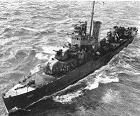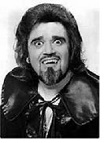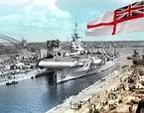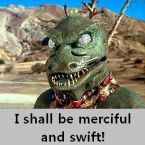warspite1
Posts: 41353
Joined: 2/2/2008
From: England
Status: offline

|
quote:
ORIGINAL: warspite1
- I would be keen to know why the Inquiry was keen to reinstate and why the presidents refused.
warspite1
Well I've only been able to find a few bits and pieces, but I do think it curious that there is open criticism of Marshall and Stark - but only Kimmel and Short were left to hang.
....Excerpts From the Pearl Harbor Investigations
the dorn report (1995)
``Responsibility for the Pearl Harbor disaster should not
fall solely on the shoulders of Admiral Kimmel and General
Short; it should be broadly shared.''
``It is clear today, as it should have been since 1946 to
any serious reader of the JCC (Joint Congressional Committee)
hearing record, that Admiral Kimmel and General Short were
not solely responsible for the defeat at Pearl Harbor.''
``. . . the evidence of the handling of these
(intelligence) messages in Washington reveals some
ineptitude, some unwarranted assumptions and misestimates,
limited coordination, ambiguous language, and lack of
clarification and follow-up at higher levels.''
``The `pilot', `fourteen-point' and `one o'clock' messages
point, by the evening of December 6th, to war at dawn
(Hawaiian time) on the 7th--not to an attack on Hawaii--but
officials in Washington were neither energetic nor effective
in getting that warning to the Hawaiian commanders.''
The Army Board for the Correction of Military Records (1991)
``The Army Pearl Harbor Board (of 1944), held that General
Marshall and the Chief of War Plans Division of the War
Department shared in the responsibility for the disaster.''
``The applicant in this case . . . must show . . . that the
FSM (in this case Major General Short) was unjustly treated
by the Army . . . the majority found evidence of injustice.''
``In this regard, the majority was of the opinion that the
FSM, singularly or with the Naval commander, was unjustly
held responsible for the Pearl Harbor disaster.''
``Considering the passage of time as well as the burden and
stigma carried until his untimely death in 1949, it would be
equitable and just to restore the FSM to his former rank of
lieutenant general on the retired list.''
``Recommendation.--That all of the Department of the Army
records, related to this case be corrected by advancing the
individual concerned to the rank of lieutenant general on the
retired list.''
the army pearl harbor board inquiry (1944)
``The Chief of Staff of the Army, General George C.
Marshall, failed in his relations with the Hawaiian
Department in the following particulars:
(a) To keep the Commanding General of the Hawaiian
Department fully advised of the growing tenseness of the
Japanese situation which indicated an increasing necessity
for better preparation for war, of which information he had
an abundance and Short had little.
(b) To send additional instructions to the Commanding
General of the Hawaiian Department on November 28, 1941, when
evidently he failed to realize the import of General Short's
reply of November 27th, which indicated clearly that General
Short had misunderstood and misconstrued the message of
November 27 and had not adequately alerted his command for
war.
(c) To get to General Short on the evening of December 6th
and the early morning of December 7th, the critical
information indicating an almost imminent break with Japan,
though there was ample time to have accomplished this.''
``Chief of War Plans Division War Department General Staff,
Major General Leonard T. Gerow, failed in his duties in the
following respects:
(a) To send to the Commanding General of the Hawaiian
Department on November 27, 1941, a clear, concise directive;
on the contrary, he approved the message of November 27,
1941, which contained the confusing statements.
(b) To realize that the state of readiness reported in
Short's reply to the November 27th message was not a state of
war readiness, and he failed to take corrective action.''
the naval court of inquiry (1944)
``It is a prime obligation of Command to keep subordinate
commanders, particularly those in distant areas, constantly
supplied with information. To fail to meet this obligation is
to commit a military error.''
``It is a fact that Admiral Stark, as Chief of Naval
Operations and responsible for the operation of the Pacific
Fleet, and having important information in his possession
during this critical period, especially on the morning of 7
December, failed to transmit this information to Admiral
Kimmel, this depriving the latter of a clear picture of the
existing Japanese situation as seen in Washington.''
``The Court is of the opinion that the deficiencies in
personnel and materiel which existed in 1941, had a direct
adverse bearing upon the effectiveness of the defense of
Pearl Harbor on and prior to 7 December.''
``The Court is of the opinion that Admiral Kimmel's
decision, made after the dispatch of 24 November, to continue
preparations of the Pacific Fleet for war, was sound in light
of the information then available to him.''
``The Court is of the opinion that Admiral Harold R. Stark,
U.S.N., Chief of Naval Operations . . . failed to display the
sound judgement expected of him in that he did not transmit
to Admiral Kimmel . . . during the very critical period 26
November to 7 December, important information which he had
regarding the Japanese situation, and especially on the
morning of 7 December 1941, he did not transmit immediately
the fact that a message had been received which appeared to
indicate that a break in diplomatic relations was imminent,
and that an attack in the Hawaiian area might be expected
soon.''
the joint congressional committee report (1946)
``The errors made by the Hawaiian commanders were errors of
judgment and not derelictions of duty.''
``The War Plans Divisions of the War and Navy Departments
failed:
``(a) To give careful and thoughtful consideration to the
intercepted messages from Tokyo to Honolulu of September 24,
November 15, and November 20 (the harbor berth plan and
related dispatches) and to raise a question as to their
significance. Since they indicated a particular interest in
the Pacific Fleet's base, this intelligence should have been
appreciated and supplied to the Hawaiian commanders for their
assistance, along with other information available to them,
in making their estimate of the situation.
``(b) To be properly on the qui vive to receive the `one
o'clock' intercept and to recognize in the message the fact
that some Japanese military action would very possibly occur
somewhere at 1 p.m., December 7. If properly appreciated this
intelligence should have suggested a dispatch to all Pacific
outpost commanders supplying this information, as General
Marshall attempted to do immediately upon seeing it.''
_____________________________
England expects that every man will do his duty. Horatio Nelson October 1805  |
 Printable Version
Printable Version



















 New Messages
New Messages No New Messages
No New Messages Hot Topic w/ New Messages
Hot Topic w/ New Messages Hot Topic w/o New Messages
Hot Topic w/o New Messages Locked w/ New Messages
Locked w/ New Messages Locked w/o New Messages
Locked w/o New Messages Post New Thread
Post New Thread